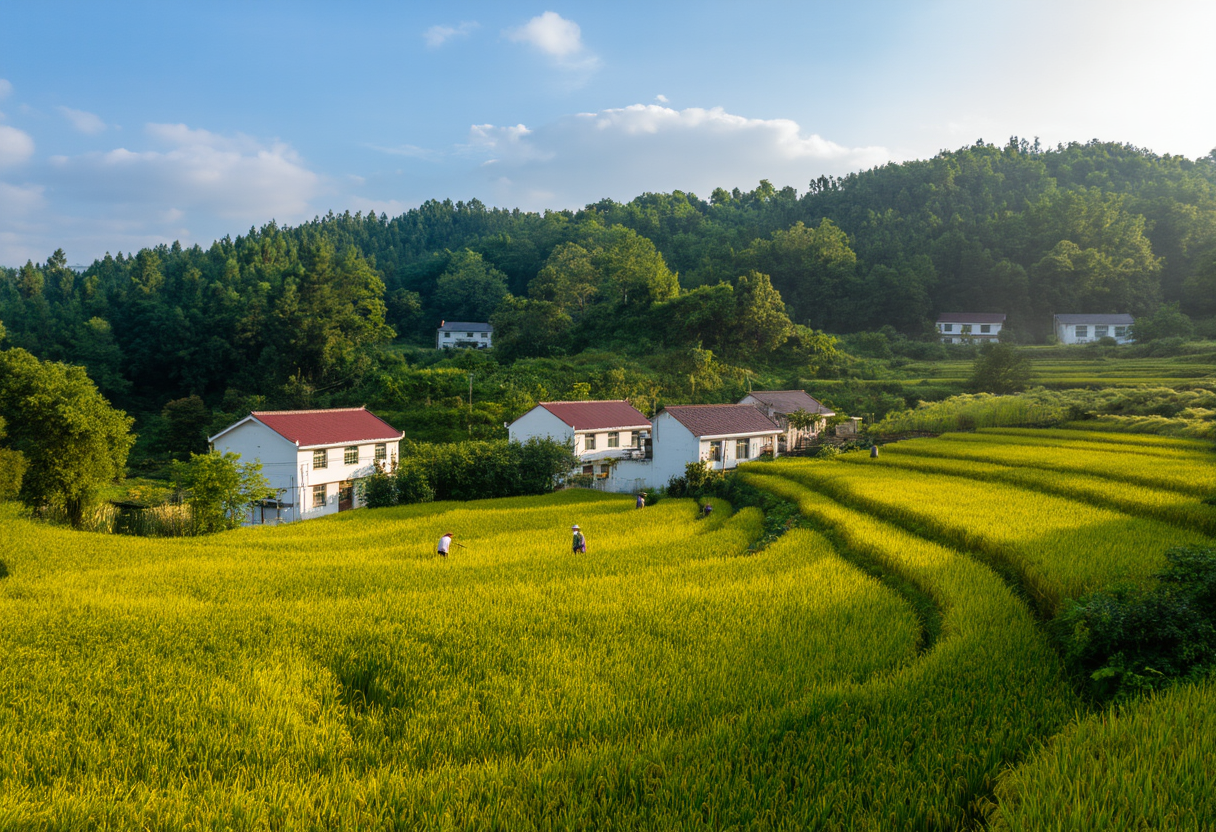Rural Tourism: Embracing the Future of Sustainable Travel
As urban areas become increasingly crowded, rural tourism emerges as a crucial alternative for travelers seeking tranquility and connection to nature. This article examines how rural tourism can thrive sustainably, enhancing local economies while preserving natural landscapes and cultural heritages. Discover strategies to promote this growing sector as we anticipate a shift in global travel preferences.
The Appeal of Rural Tourism
Rural tourism is rapidly gaining traction as urban dwellers seek refuge from crowded cities and the stress of daily life. This form of travel allows individuals to immerse themselves in tranquil environments, often surrounded by stunning landscapes and rich cultural experiences. The appeal of rural tourism lies in its ability to transport visitors away from the hustle and bustle and into a simpler, more peaceful way of life. While rural tourism caters to a growing niche market, it also presents significant opportunities for local economies. As people flock to rural areas for respite, communities are encouraged to develop unique offerings that attract visitors. Furthermore, rural tourism brings increased awareness of environmental conservation efforts, stimulating advocacy for local resources and wildlife. Embracing this trend not only enriches visitors but also fosters economic growth in underserved regions.
Cultural Significance in Rural Tourism
Cultural experiences hold immense value in rural tourism, providing tourists a chance to engage with local traditions, crafts, and culinary practices. These interactions contribute to preserving cultural heritage while fostering mutual understanding between visitors and locals. This exchange represents a cornerstone of functional rural tourism, allowing communities to share their stories through arts, crafts, and food. Participatory experiences, such as workshops, can be tailored to teach visitors about local customs and practices, enhancing the authenticity of their travel experience. Successful rural tourism often hinges on the ability to marry cultural elements with tourist offerings, creating an enriching narrative that captivates visitors. Moreover, cultural experiences can promote pride among residents, encouraging communities to sustain and celebrate their unique identities. By placing cultural significance at the forefront, rural tourism crafts memorable experiences that resonate on personal and community levels.
Balancing Growth with Sustainability
The surge in rural tourism presents both opportunities and challenges regarding sustainability. As destinations become popular, it’s crucial to incorporate sustainable practices into their development plans. This means ensuring that natural resources aren't exploited and that the cultural integrity of these areas is upheld. Communities need to have a forward-thinking approach, crafting rules that promote environmentally friendly practices among both visitors and local businesses. Consequently, fostering awareness of responsible tourism among guests is essential; educating them on minimizing their ecological footprint can enhance the sustainability of rural experiences. Partnerships between local governments, tourism bodies, and conservation groups can also create frameworks to guide sustainable practices. Ultimately, achieving a balance of growth and conservation will secure the benefits of rural tourism while safeguarding the character of these precious spaces.
Innovative Marketing Approaches
Marketing strategies play an instrumental role in driving the success of rural tourism, especially in a competitive travel landscape. An effective marketing campaign should emphasize the unique attributes of rural destinations, appealing to tourists' desire for authenticity and connection to nature. Utilizing modern technologies, such as VR and AR experiences, can transport prospective visitors to these locales in innovative ways. Social media channels can showcase stunning visuals, engaging narratives, and testimonials from past visitors that further amplify interest. Additionally, partnerships with local businesses can create package experiences, enhancing the attractiveness of rural tourism offerings. The key to successful marketing lies in telling a compelling story that resonates with potential tourists' values, ensuring that rural tourism becomes a sought-after experience. By embracing technology and customer-centric marketing, rural tourism can effectively capture the interest of a global audience.
Community Involvement and Development
Successful rural tourism is deeply rooted in community involvement. Engaging local residents in the planning and development of tourism initiatives is critical to ensuring that their needs and aspirations are met. This harmonious relationship encourages locals to take ownership of their tourism offerings and fosters a sense of pride in their community. Programs that train locals to serve as guides or hospitality providers can enhance the visitor experience while benefiting the community economically. Furthermore, community-led initiatives are often better aligned with preserving local culture and environments, appealing to the growing eco-conscious traveler demographic. This incorporation of community insights leads to the creation of authentic experiences that showcase the true essence of rural life. By advocating for community involvement, rural tourism can flourish as an inclusive and sustainable model.
The Vision for the Future of Rural Tourism
The future of rural tourism is bright, filled with endless possibilities for growth and innovation. With increasing consumer awareness around sustainability, rural tourism has the potential to carve out a significant place in the global travel market. Local and regional authorities are recognizing the value of rural tourism in promoting economic diversity, enriching community life, and fostering environmental stewardship. Through collaborative efforts across various sectors—government, local businesses, and tourism organizations—there exists a robust framework to support sustainable growth. As visitors increasingly seek experiences rooted in local culture and the natural world, rural tourism stands poised to thrive. Ultimately, as rural areas adapt to changing travel preferences, they also play a crucial role in reimagining the future of sustainable travel.
